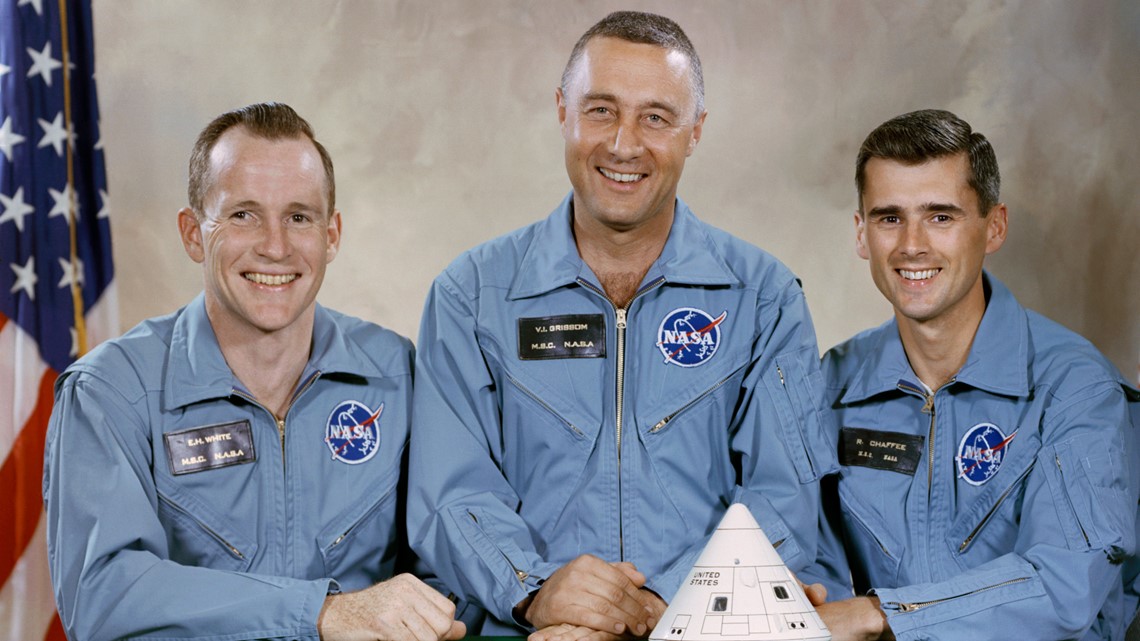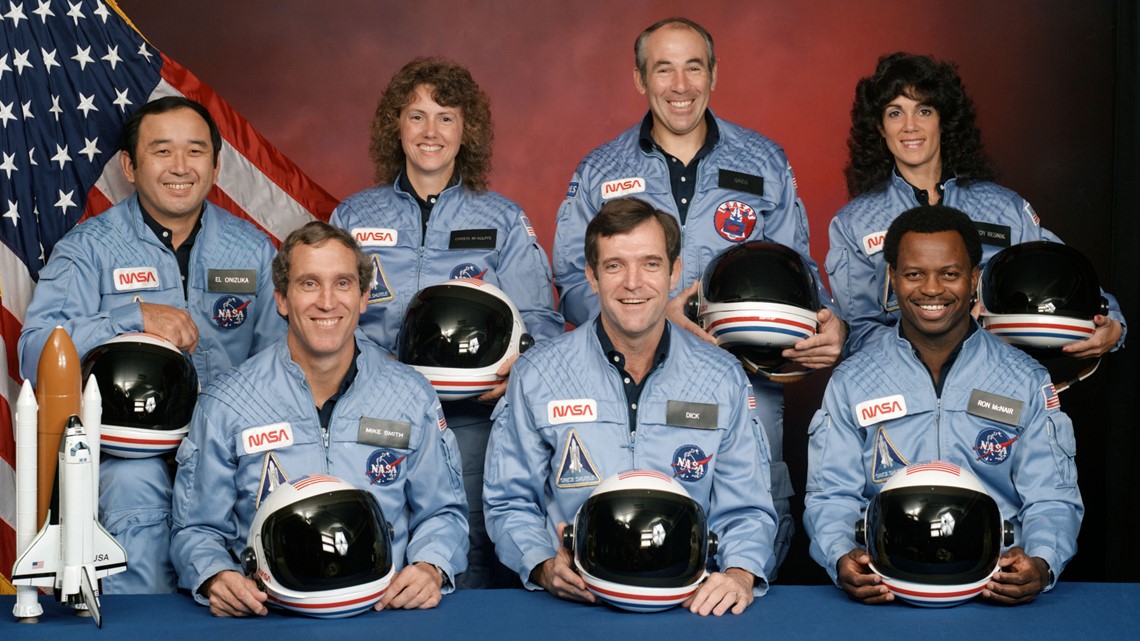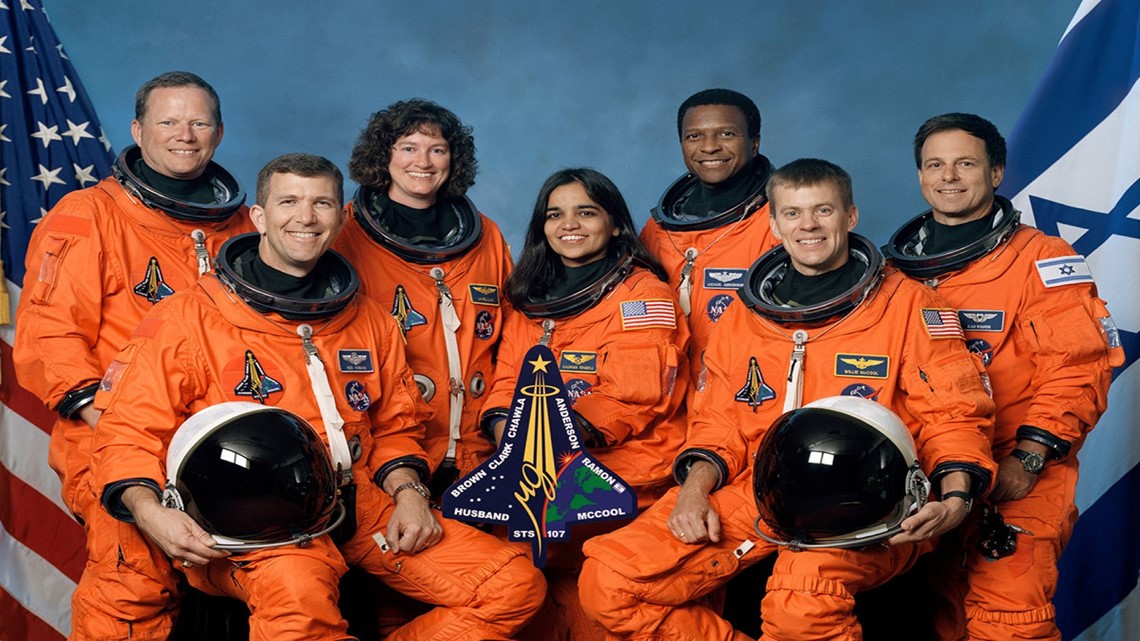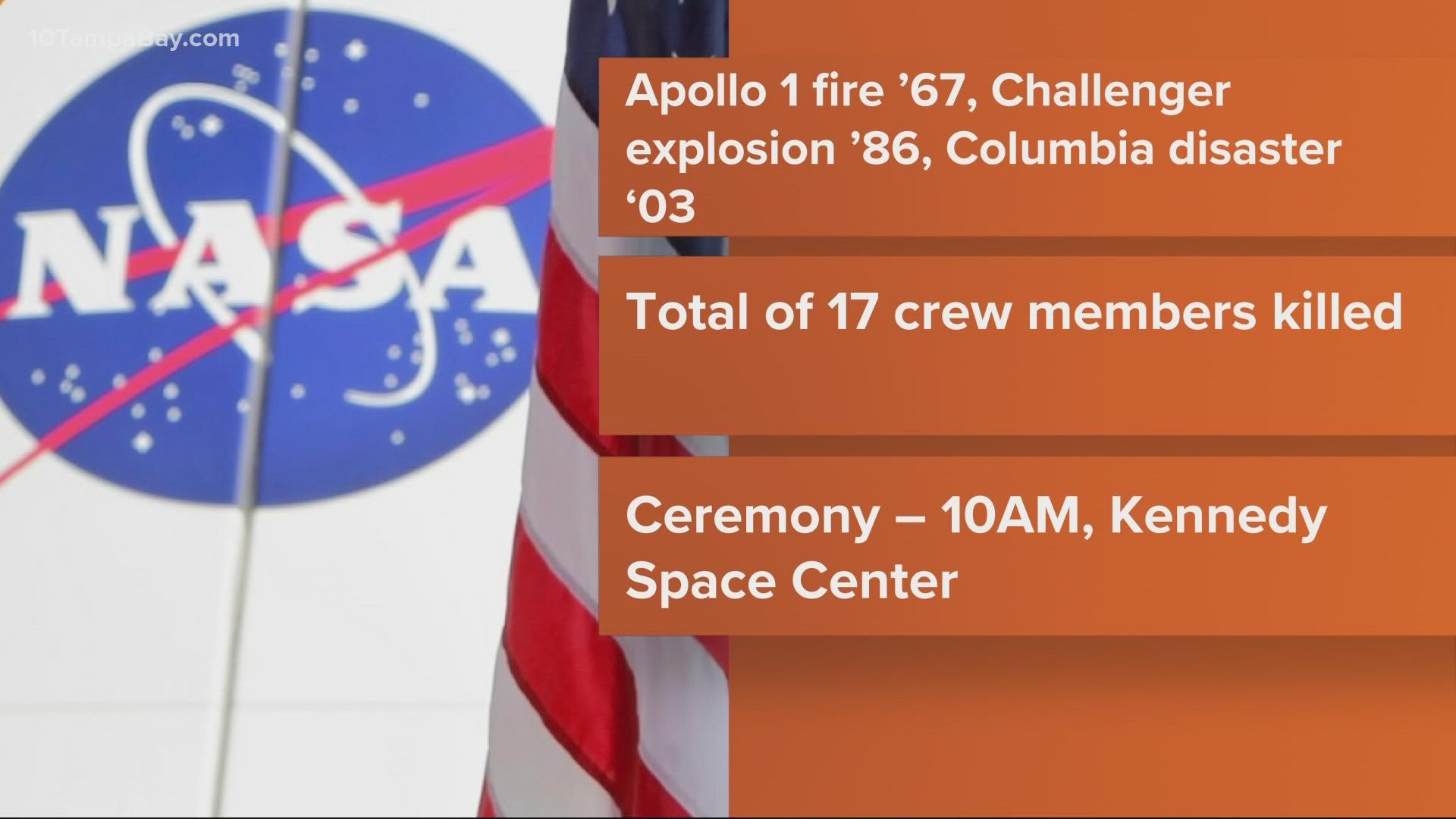CAPE CANAVERAL, Fla. — Every January, NASA pauses to honor and remember the lives lost in the pursuit of space and "furthering the cause of exploration and discovery."
The tribute is called "NASA Day of Remembrance" and will take place on Jan. 27. The date marks the 55th anniversary of the tragic fire that killed the three-person crew of the Apollo I mission during a preflight test.
"Space exploration is an inherently risky endeavor. While NASA and its astronauts willingly and bravely accept those risks, it is the duty of the living to honor and commemorate each tragic loss we have endured," the nation's top space agency wrote.
The ceremony's tradition began in 2004 and takes place on the last Thursday in January to pay homage to three of the agency's most devastating tragedies: the Apollo I fire, the loss of the space shuttle Challenger and the loss of the space shuttle Columbia.
While each tragedy happened within the same calendar week, they occurred decades apart from each other.
"The NASA Day of Remembrance is not simply a time to commemorate our fallen astronaut heroes, but a time to reflect on why we pursue this mission and everything the extended NASA family has sacrificed to achieve it," NASA wrote.
This year, NASA Administrator Bill Nelson will mark the solemn day with an observance at Arlington National Cemetery in Virginia. Specific observances for the Apollo I, Challenger and Columbia crews will follow.
“NASA’s Day of Remembrance is an opportunity to honor members of the NASA family who lost their lives in our shared endeavor to advance exploration and discovery for the good of all humanity,” Nelson said.
“Every day, we have an opportunity to further uplift the legacies of those who gave their lives in pursuit of discovery by taking the next giant leap, meeting every challenge head-on, as they did. In doing so, we also must never forget the lessons learned from each tragedy, and embrace our core value of safety,” he added.
In Florida, NASA's Kennedy Space Center, in partnership with The Astronauts Memorial Foundation, will hold its own ceremony at the Space Mirror Memorial.
The ceremony will include remarks by Kennedy Center Deputy Director Kelvin Manning and Astronauts Memorial Foundation President and CEO Thad Altman.
You can watch the ceremony beginning at 10 a.m. on KSC's Facebook. You can also tune in to 10 Tampa Bay on Facebook, YouTube, or online to watch the live stream.
Apollo I
On Jan. 27, 1967, a fire broke out during a preflight test for what would later be named the Apollo I mission.
The three-person crew of Virgil Grissom, Edward White and Roger Chaffee were all killed when the flames swept through the mission's command module.
"The investigation into the fatal accident led to major design and engineering changes, making the Apollo spacecraft safer for the coming journeys to the Moon," NASA wrote.
It's believed that the fire most likely began in the lower forward portion of an equipment bay. NASA says the fire burned in three stages.


Challenger
On Jan. 28, 1986, the space shuttle Challenger exploded 73 seconds after liftoff due to a booster engine failure.
NASA says the shuttle, carrying six astronauts and the first space-bound teacher, was at an altitude of 46,000 feet when it became "totally enveloped in the explosive burn."
The incident claimed the lives of Gregory Jarvis, Judith Resnik, Dick Scobee, Ronald McNair, Michael Smith, Ellison Onizuka and Christa McAuliffe.
While addressing the nation, at the time, President Ronald Reagan is noted as quoting John Gillespie Magee's poem "High Flight."
"We will never forget them, nor the last time we saw them, this morning, as they prepared for the journey and waved goodbye and 'slipped the surly bonds of earth' to 'touch the face of God,'" he's recorded as saying.
The cause of the explosion was determined to be an "o-ring" failure in the right solid rocket booster, according to NASA. The nation's top space agency says cold weather also played a factor in the tragedy.


Columbia
On Feb. 1, 2003, the seven-member crew of NASA's space shuttle Columbia was 16 minutes from landing when Mission Control lost contact with the shuttle.
A piece of foam had fallen from the external tank during launch and opened a hole in one of the shuttle's wings. The action lead the orbiter to break up upon re-entry, according to NASA.
The incident claimed the lives of Rick Husband, William McCool, Michael Anderson, David Brown, Kalpana Chawla, Laurel Blair Salton Clark and Ilan Ramon.
Addressing the nation, at the time, then-President George W. Bush said, "mankind is led into the darkness beyond our world by the inspiration of discovery and the longing to understand. Our journey into space will go on."
The crew had just completed a 16-day mission focused on researching physical, life, and space sciences, according to NASA.



